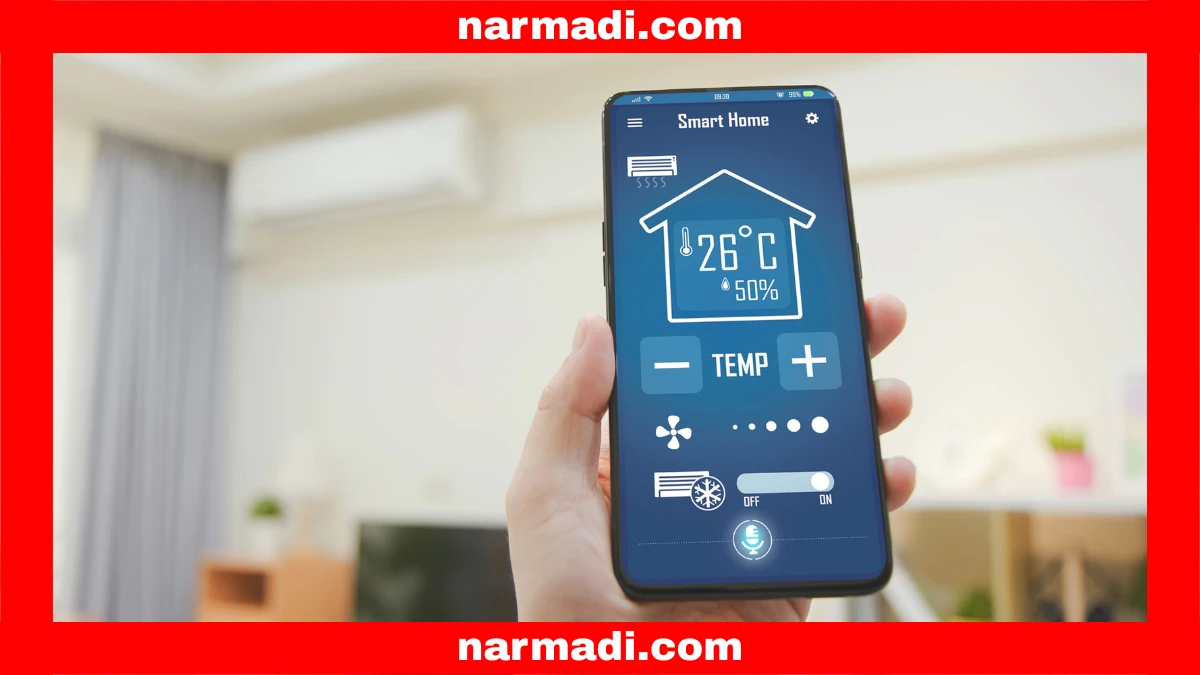Technological advances have supported the launch of various smart devices, including Smart Air Conditioners (Smart AC). Not only do these smart devices cool rooms, but they also provide users with a highly interactive experience thanks to their advanced technology and features.
What distinguishes Smart Air Conditioners from conventional air conditioners is their interactive features. This is what makes them smart, as they can provide automated control and integration with other smart home devices.
This article will provide information about Smart Air Conditioners, including their definition, features, and applicable usage regulations.
What is Smart Air Conditioner?

Smart Air Conditioners are a type of air conditioner equipped with advanced technology that can be controlled remotely via an internet connection (Wi-Fi) using an app on a smartphone or tablet. This device is designed to provide better control, energy efficiency, and comfort for its users.
In this case, Smart Air Conditioners not only provide cool air but also offer a better interactive experience for users. Its main features include temperature settings, automatic operation schedules, and smart sensors to optimize energy usage. In addition, smart air conditioners can be integrated with other smart home ecosystems.
The Features

Smart Air Conditioners are equipped with various advanced features. Here are some of the main features you will encounter when using them:
1. Smart sensors
Smart Air Conditioners are equipped with smart sensors that can detect the temperature and humidity in their surroundings. These sensors will adjust the outside temperature and the room temperature. That way, you don’t have to bother manually adjusting the temperature to get the ideal room temperature.
2. Integration with virtual assistants
Some smart AC models are equipped with features that can connect to virtual assistants such as Google Assistant or Amazon Alexa. This feature allows you to control the AC using voice commands, providing a more modern, practical, and efficient experience.
Additionally, smart ACs can also connect to various devices within a smart home ecosystem, creating an integrated and easier-to-manage smart home system. For example, you can set the AC to turn on and the lights to turn off automatically when you want to sleep at night, eliminating the need for manual adjustments.
3. Remote control via app
One of the main advantages of Smart AC is its ability to be controlled via a smartphone app. You can adjust the temperature, fan speed, and operating mode from anywhere and at any time.
This feature is very useful when you want to turn the AC on or off before arriving home or when you are away. That way, you can ensure that the AC is only turned on when needed, thus avoiding energy waste.
4. Automatic schedule settings
Smart AC allows you to set the operating schedule according to your daily needs. You can set the AC to turn on or off automatically at a specific time. This will help optimize energy efficiency and ensure comfort when needed.
5. Energy consumption monitoring
The energy monitoring feature on Smart AC allows users to track energy usage in real-time. With this information, you can analyze the efficiency of your AC usage and make better decisions in managing energy consumption. As a result, you can reduce the cost of using electronic devices at home.
How to Choose a Smart Air Conditioner: Features You Actually Need
When choosing a smart air conditioner, there are three things you need to consider before buying it, namely installation and maintenance, budget, and suitability. You need to ensure installation requirements and long-term costs, such as service and spare parts availability.
Budget is the most crucial factor, as it will determine the features you get. If you want to have many features, of course, you need to spend more money. Features you typically prioritize include inverter technology, cooling capacity, and smart connectivity (WiFi, app control, and voice assistants) for convenience.
The last thing you need to consider is the compatibility of smart features and apps with the smart devices you already have at home. This is very important if you want to integrate them into a smart home ecosystem for greater automation.
The Regulations

A smart air conditioner utilizes WiFi technology, which operates within a specific frequency spectrum. In every country, all WiFi-based wireless devices are required to have Radio Frequency (RF) Certification.
Smart air conditioner regulations require all radio frequency-based devices to meet certain technical standards before they can be sold in that country. This certification ensures that the product complies with government safety and quality regulations and does not interfere with other communication devices.
The certification process involves technical testing, such as frequency adjustment, safety checks, and compatibility with the surrounding environment. Once testing is complete, products that pass will be listed in a Test Report, confirming that they are safe and ready for sale. This report assures customers that the product meets technical standards and is safe.
For companies wishing to sell smart air conditioners, our product compliance services are available to assist with this process. This service includes preparing technical and legal documents, conducting the necessary testing, ensuring regulatory compliance, helping companies streamline the certification process, and providing consumers with confidence in certified products. [UN]

